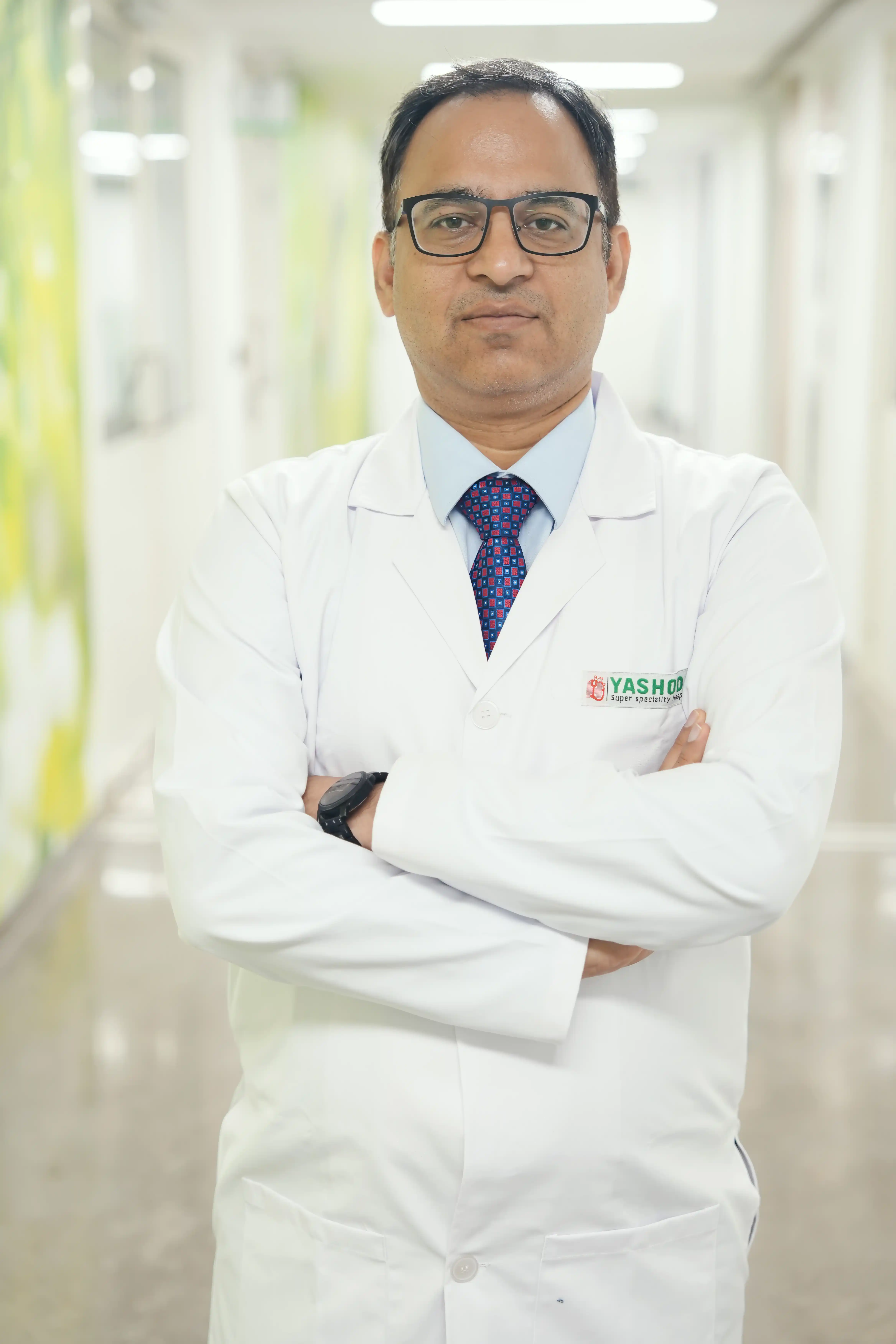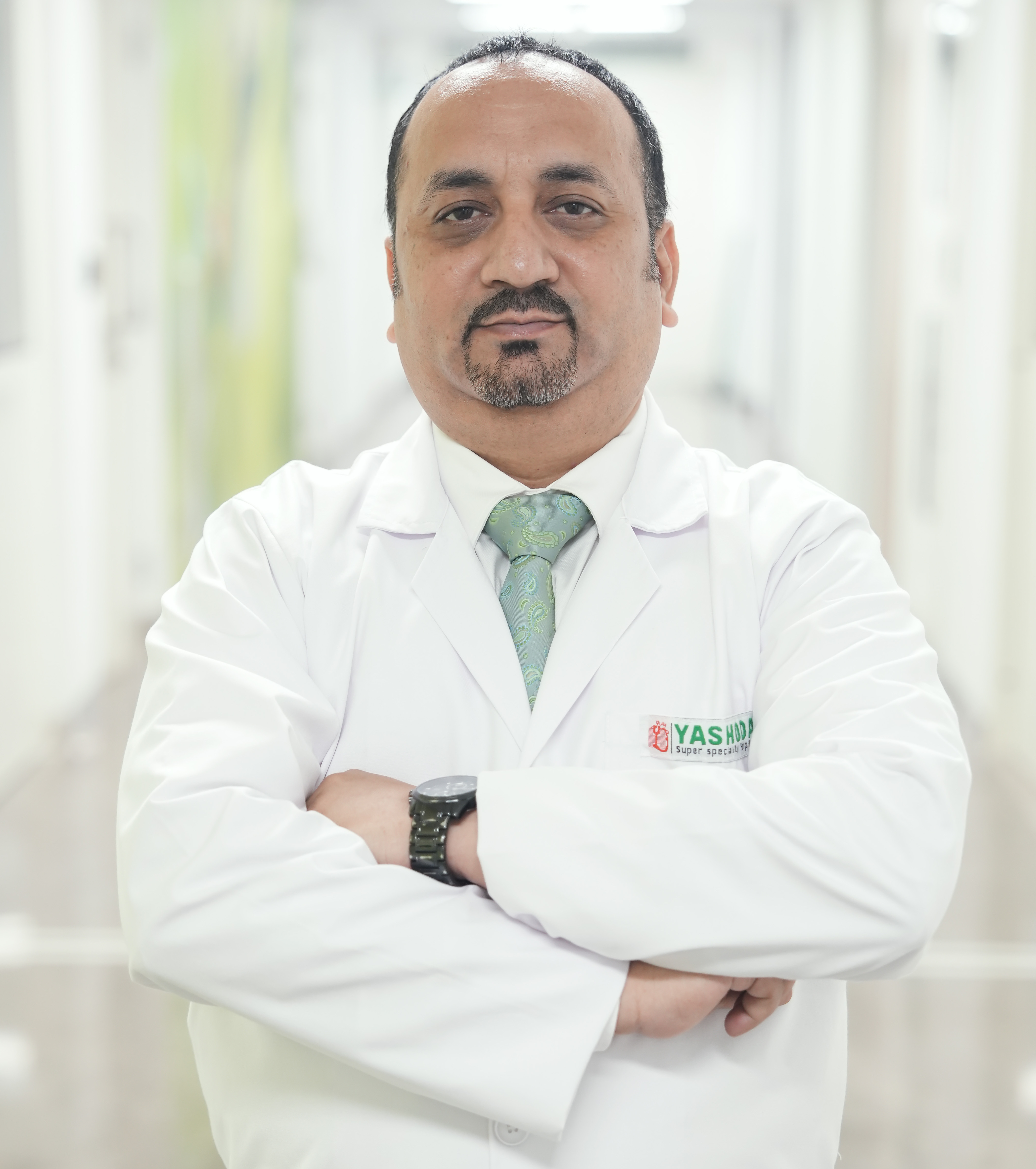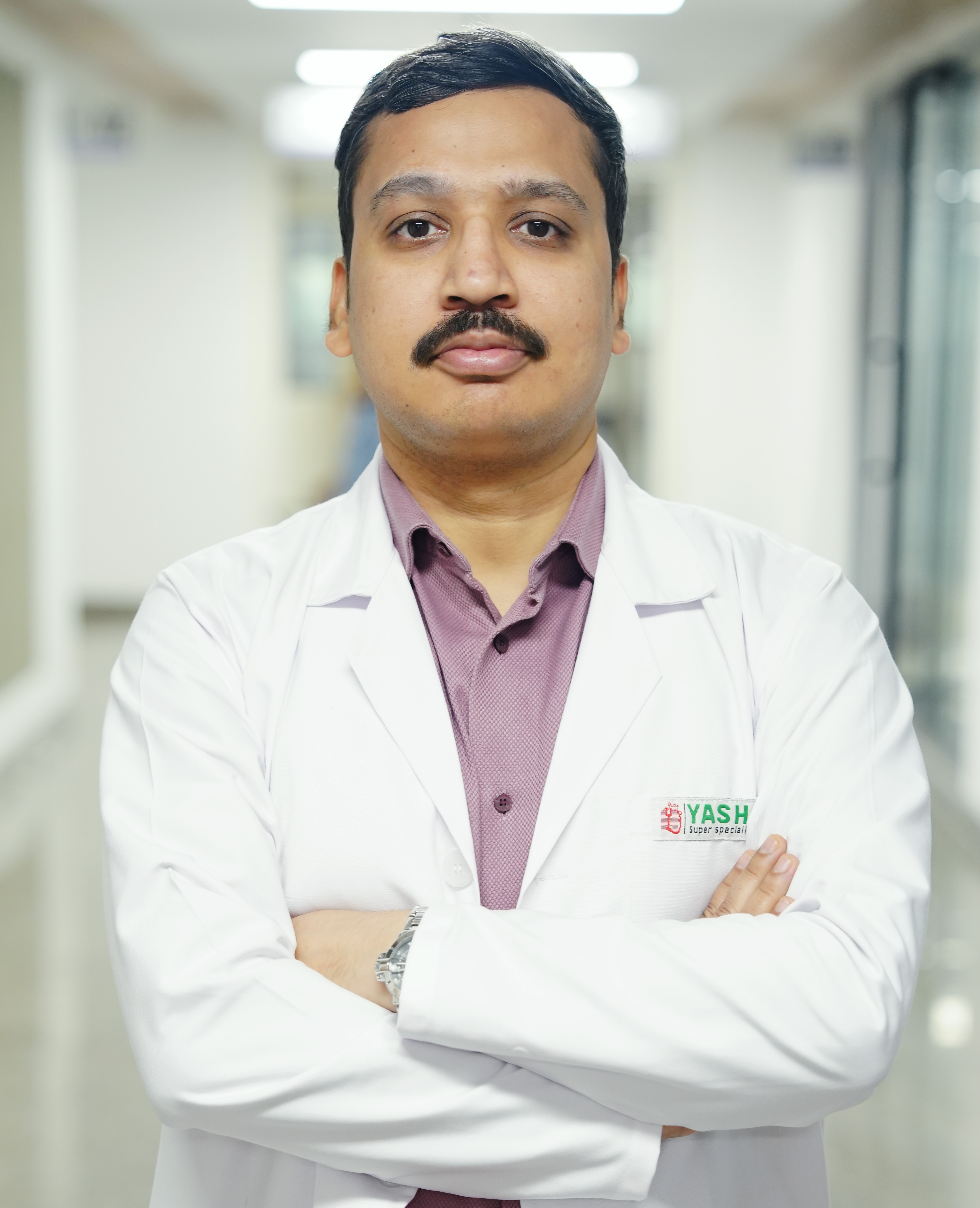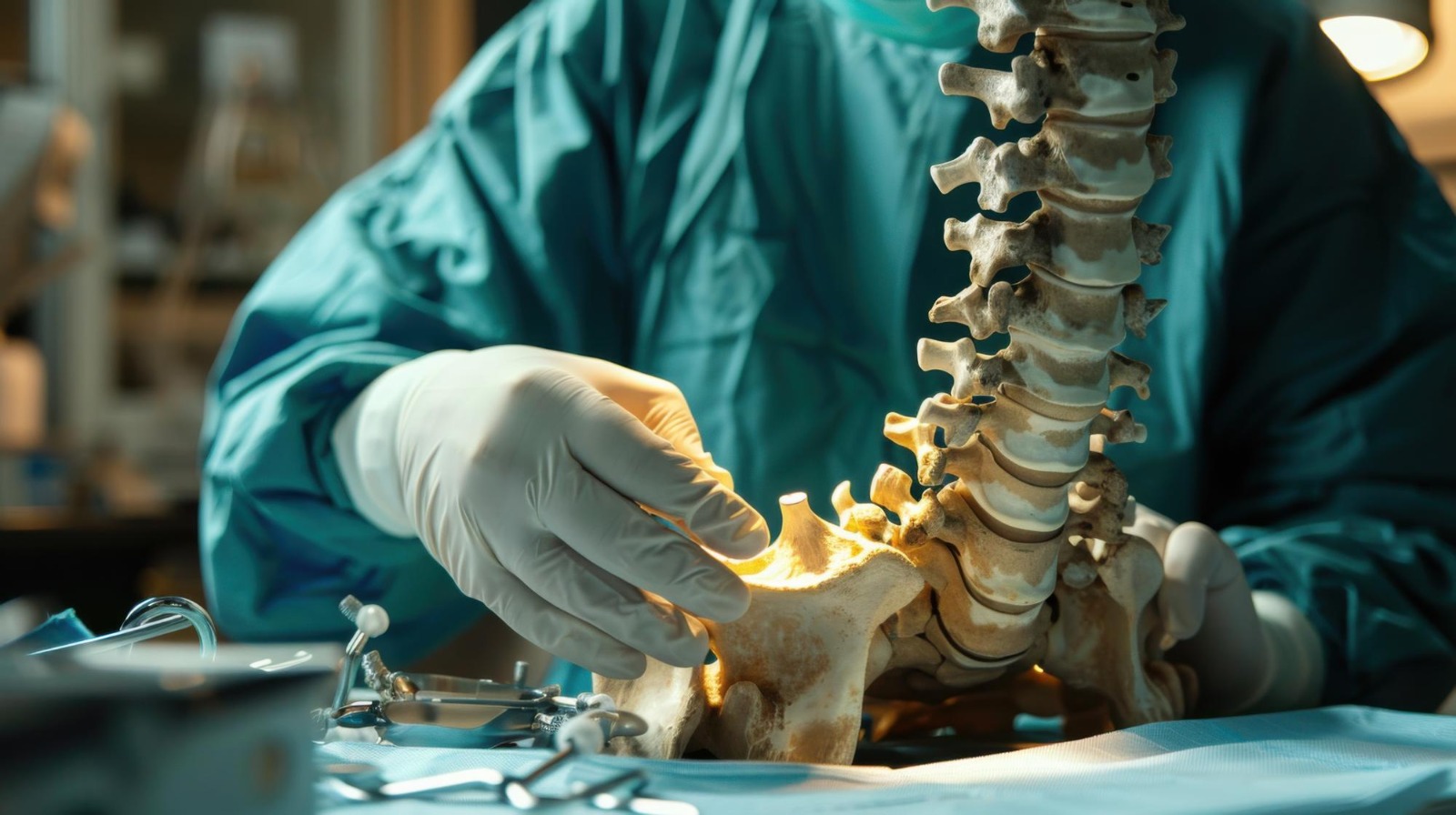 Open Emergency Modal
Open Emergency Modal
 Open Emergency Modal
Open Emergency Modal
Overview of Specialty
At Yashoda Medicity, we combine surgical excellence, cutting-edge technology, and compassionate care to treat the entire spectrum of heart, lung, and vascular conditions. Our department of cardiothoracic and vascular surgery delivers comprehensive, advanced surgical care from life-saving emergency procedures to minimally invasive and robotic innovations. Blending medical expertise with compassion, our team ensures that every patient gets the safest and most advanced treatment possible. Each service is designed to ensure the best possible outcome while focusing on patient comfort, safety, and quality of life.
Services Available
Adult Cardiac Surgery
Coronary Artery Bypass Grafting (CABG)
CABG restores blood supply to the heart by rerouting blood around blocked arteries. Durable grafts are selected based on individual anatomy, helping relieve chest pain, improve exercise capacity, and lower the risk of future heart attacks.
Beating Heart Bypass
In this advanced method, bypass is performed on the heart while it continues to beat, avoiding the use of a heart-lung machine. It is especially beneficial for elderly or high-risk individuals, with shorter recovery and fewer complications.
Total Arterial CABGBy using only arterial grafts, known for superior longevity, we maximize the lifespan of the bypass and minimize the chance of re-blockage. This approach is ideal for younger patients or those seeking the most durable solution. Total arterial CABG remains the gold standard treatment for patients with multivessel coronary artery disease.
Heart Valve Surgery
Valve Repairs
Whenever possible, the natural valve is repaired to maintain original tissue and function. This often leads to better long-term outcomes and reduces the need for lifelong blood-thinning medication.
Valve Replacements
When repair is not possible, valves are replaced with either mechanical or biological prostheses. This restores proper blood flow, relieves breathlessness or fatigue, and protects the heart and lungs from further strain.
Cardiac Tumors & RSOV Repairs
Cardiac tumors, though rare, can disrupt heart function or cause serious complications. We specialize in the surgical removal of benign and malignant heart tumors, as well as repairing ruptured sinus of Valsalva (RSOV), a critical defect where blood abnormally flows into the heart chambers. Early, precise surgery not only restores normal function but also prevents sudden deterioration.
Minimally Invasive Cardiac Surgery (MICS)
Minimally Invasive Bypass (MIDCAB) – Offers the benefits of traditional bypass surgery through small chest incisions, avoiding breastbone division. Patients recover faster with less pain and smaller scars.
Minimally Invasive Valve Replacements – Carried out through tiny incisions, providing the same effectiveness as open surgery but with shorter hospital stays and quicker return to routine.
Trans-Axillary Approaches – Innovative valve or ASD surgeries through an incision near the armpit. This reduces visible scarring and allows a faster, less painful recovery.
Pediatric Cardiac Surgery
Acyanotic CHD – ASD / VSD / PDA – We repair common congenital defects such as atrial septal defects, ventricular septal defects, and patent ductus arteriosus. Early correction ensures healthy growth, prevents strain on the heart and lungs, and allows children to lead active, healthy lives.
Cyanotic Conditions (TOF, TAPVC, Shunts) – For conditions where oxygen-poor blood circulates through the body, we perform corrective or palliative surgeries to restore oxygen levels. These interventions can dramatically improve a child’s energy, development, and survival.
Complex Congenital Defects – Advanced operations such as arterial switch or truncus repair offers children with life-threatening anomalies a chance at an active life.
Aortic Surgery
Dissections and Aneurysms – Dissections and aneurysms of the aorta are potentially life-threatening conditions that demand expert intervention. Our team performs both emergency and planned surgeries to repair the damaged vessel wall, replace affected segments with durable grafts, and prevent rupture or organ damage. Timely treatment can be the difference between a safe recovery and catastrophic complications.
Bentall’s Procedure – A complex operation replacing both the aortic valve and root in one operation. It is especially useful for patients with aneurysms, connective tissue disorders, or valve disease, ensuring a stable, long-lasting repair.
Hybrid Aortic Procedures – Combine open and minimally invasive approaches to handle complex cases safely, with quicker recovery.
Vascular Surgery
Vascular Surgery
Our vascular surgery programme provides complete care for conditions affecting arteries and veins across the body. From complex bypass operations to minimally invasive endovascular therapies, the focus is on restoring healthy blood flow, easing symptoms, and preventing limb-threatening complications. Every treatment is planned to suit individual needs.
Endovenous Laser Ablation (EVLA) for Varicose Veins
EVLA is a modern, walk-in procedure designed to treat painful or visible varicose veins. A fine catheter delivers laser energy to seal the affected vein, redirecting blood to healthier vessels. With almost no scarring, this technique offers quick relief from heaviness, swelling, and cramping in the legs, while allowing a fast return to normal activities.
Peripheral Vascular Procedures
These treatments target narrowing or blockages in the arteries that supply blood to the legs, arms, or other areas. Angioplasty, stenting, and bypass surgery are used to improve circulation, reduce discomfort, and restore mobility. Early treatment of peripheral artery disease also lowers the risk of ulcers, gangrene, or loss of limb.
Percutaneous Aortic & Vascular Interventions
TAVI (Transcatheter Aortic Valve Implantation)
This minimally invasive technique replaces diseased aortic valves without the need for open-heart surgery. A new valve is placed through a catheter, making it an effective choice for individuals at higher surgical risk, while delivering strong long-term outcomes.
EVAR & TEVAR
Endovascular Aneurysm Repair (EVAR) and Thoracic Endovascular Aneurysm Repair (TEVAR) involve placing stent grafts through small groin incisions to repair aneurysms. This method avoids large cuts, shortens recovery, and reduces post-procedure discomfort.
Hybrid Procedures
Hybrid approaches combine catheter-based techniques with open surgery in the same session. This method is particularly valuable for complex cases, offering the advantages of both strategies together.
Robotic-Assisted Cardiac Surgery
Robotics allow surgeons to work through small incisions with enhanced precision and control.
Robotic-Assisted CABG
Using robotic technology, we perform coronary bypasses through tiny incisions with unparalleled precision. Patients experience less pain, reduced blood loss, and a quicker return to normal activities without compromising surgical results.
Robotic Valve / ASD / Myxoma Surgery
Robotics allow delicate repairs or replacements of valves, closure of atrial septal defects, and removal of benign tumors with minimal trauma. Enhanced vision and instrument control mean shorter recovery times and better cosmetic outcomes.
Heart Failure & Advanced Therapies
ECMO – ECMO temporarily takes over the function of the heart and lungs, allowing them to rest and heal during severe illness or after major surgery. It is often a life-saving bridge to recovery or further treatment.
Ventricular Assist Devices (VADs) – Mechanical pumps that support heart function in patients with advanced heart failure. VADs can be used while waiting for a transplant or as long-term therapy for those who are not transplant candidates.
Heart Transplantation – For patients with end-stage heart disease, transplantation offers the chance of a longer, healthier life. We provide comprehensive care from evaluation and surgery to long-term follow-up.
Cardiovascular Emergencies
When seconds matter, our cardiac and vascular surgeons are equipped to handle the most critical emergencies, be it massive heart attacks or a major vessel injuries. A 24×7 surgical response, backed by advanced imaging, hybrid operating rooms, and critical care support, ensures that patients get life-saving treatment without delay.
Ventricular Septal Ruptures
A serious complication of severe heart attacks, a ventricular septal rupture creates a dangerous hole between the heart’s pumping chambers. Surgical repair involves patching the defect and stabilizing heart function, preventing rapid decline and restoring effective circulation.
Aortic Dissections
An aortic dissection occurs when a tear develops in the inner wall of the aorta, allowing blood to flow between the layers of the vessel wall. This is a true surgical emergency. Our team performs immediate repairs to replace or reinforce the damaged section, stopping the dissection’s progression and preserving life.
Cardiac Trauma
Penetrating injuries (such as stab wounds) or blunt force trauma (such as car accidents) to the heart require urgent, specialized care. Our surgeons perform rapid repair of heart muscle, valves, and vessels to control bleeding, restore function, and prevent fatal complications.
Conditions Treated
 More
More

Director and Unit Head: Cardio Thoracic and Vascular Surgery

Associate Director, Cardio-thoracic and Vascular Surgery

Senior Consultant, Cardiothoracic & Vascular Surgery

A 28-year-old male from Nepal was diagnosed with chronic kidney disease after experiencing persistent weakness and loss of appetite for nearly two years. Investigations revealed severely impaired kidney function, and he was initiated on hemodialysis through a catheter placed in the right side of his neck. He was advised to undergo AV fistula creation and maintain regular maintenance hemodialysis (MHD) three times a week.
However, due to irregular dialysis sessions, his condition worsened. He then consulted the expert team of nephrologists, Dr. Prajit Mazumdar and Dr. Inderjit G. Momin, along with urologists, Dr. Vaibhav Sax...
A 28-year-old male from Nepal was diagnosed with chronic kidney disease after experiencing persistent weakness and loss of appetite for nearly two years. Investigations revealed severely impaired kidney function, and he was initiated on hemodialysis through a catheter placed in the right side of his neck. He was advised to undergo AV fistula creation and maintain regular maintenance hemodialysis (MHD) three times a week.
However, due to irregular dialysis sessions, his condition worsened. He then consulted the expert team of nephrologists, Dr. Prajit Mazumdar and Dr. Inderjit G. Momin, along with urologists, Dr. Vaibhav Saxena and Dr. Kuldeep Agarwal, at Yashoda Medicity. The team counselled him regarding renal replacement therapy (RRT), the importance of regular MHD, and recommended renal transplantation as the most effective long-term solution.
His transplant evaluation began with his mother as the donor. During the assessment, he was found to have significant anaemia and reduced cardiac function, likely resulting from inconsistent dialysis, which increased his peri-operative risk. After thorough counselling, he was optimised for surgery, and immunosuppressive therapy was initiated two days prior to the procedure.
The patient successfully underwent renal transplantation with ATG induction. Post-surgery, he showed excellent recovery with good urine output and steadily improving creatinine levels. He was discharged with a creatinine of 1.2 mg/dl and continues to do well on follow-up.
Treatment By:
Dr. Vaibhav Saxena, Dr. Kuldeep Agarwal, Dr. Prajit Mazumdar, and Dr. Inderjit G. Momin

Conquering a Complex Brain Aneurysm with Advanced Endovascular Therapy
A patient with a spinal condition was treated at Yashoda Medicity through a navigation-guided minimally invasive spine surgery, marking the first such procedure in the state. The surgery was performed in our state-of-the-art Neuro-Spine OT, equipped with O-arm, Stealth-8 Neuronavigation, Allen table, and IONM.
The procedure was led by Dr. Dibya Jyoti Mahakul, Consultant – Minimally Invasive Neuro-Spine Surgeon, who performed the surgery with unmatched precision. Using the neuronavigation system, the team could visualize the move...
Conquering a Complex Brain Aneurysm with Advanced Endovascular Therapy
A patient with a spinal condition was treated at Yashoda Medicity through a navigation-guided minimally invasive spine surgery, marking the first such procedure in the state. The surgery was performed in our state-of-the-art Neuro-Spine OT, equipped with O-arm, Stealth-8 Neuronavigation, Allen table, and IONM.
The procedure was led by Dr. Dibya Jyoti Mahakul, Consultant – Minimally Invasive Neuro-Spine Surgeon, who performed the surgery with unmatched precision. Using the neuronavigation system, the team could visualize the movements of all instruments in real time, ensuring the accurate placement of implants.
The minimally invasive approach resulted in minimal blood loss and muscle damage, and the patient experienced immediate pain relief. This achievement underscores our commitment to leveraging cutting-edge technology to provide safe, precise, and effective surgical solutions for spine problems.
At Yashoda Medicity, we care about your back. When it comes to spine conditions, you’re in safe hands.
Treatment By:
Dr. Dibya Jyoti Mahakul

First Navigation-Guided Minimally Invasive Spine Surgery at Yashoda Medicity
A patient with a spinal condition was treated at Yashoda Medicity through a navigation-guided minimally invasive spine surgery, marking the first such procedure in the state. The surgery was performed in our state-of-the-art Neuro-Spine OT, equipped with O-arm, Stealth-8 Neuronavigation, Allen table, and IONM.
The procedure was led by Dr. Dibya Jyoti Mahakul, Consultant – Minimally Invasive Neuro-Spine Surgeon, who performed the surgery with unmatched precision. Using the neuronavigation system, the team could visualize the mo...
First Navigation-Guided Minimally Invasive Spine Surgery at Yashoda Medicity
A patient with a spinal condition was treated at Yashoda Medicity through a navigation-guided minimally invasive spine surgery, marking the first such procedure in the state. The surgery was performed in our state-of-the-art Neuro-Spine OT, equipped with O-arm, Stealth-8 Neuronavigation, Allen table, and IONM.
The procedure was led by Dr. Dibya Jyoti Mahakul, Consultant – Minimally Invasive Neuro-Spine Surgeon, who performed the surgery with unmatched precision. Using the neuronavigation system, the team could visualize the movements of all instruments in real time, ensuring the accurate placement of implants.
The minimally invasive approach resulted in minimal blood loss and muscle damage, and the patient experienced immediate pain relief. This achievement underscores our commitment to leveraging cutting-edge technology to provide safe, precise, and effective surgical solutions for spine problems.
At Yashoda Medicity, we care about your back. When it comes to spine conditions, you’re in safe hands.
Treatment By:
Dr. Dibya Jyoti Mahakul

A 4-year-old, 11 kg child was brought to the Department of Pediatric Cardiac Sciences at Yashoda Medicity, Indirapuram, with complaints of bluish discoloration of fingernails and toes, poor weight gain, easy fatigue on walking, and recurrent hospital admissions.
Clinical evaluation revealed an oxygen saturation of 75%, prompting further investigations including echocardiography and CT pulmonary angiography.
The child was diagnosed with Cyanotic Congenital Heart Disease known as Tetralogy of Fallot (TOF), with additional apical muscular VSD and a hypoplastic pulmonary annulus.
The patient underwent open-heart surg...
A 4-year-old, 11 kg child was brought to the Department of Pediatric Cardiac Sciences at Yashoda Medicity, Indirapuram, with complaints of bluish discoloration of fingernails and toes, poor weight gain, easy fatigue on walking, and recurrent hospital admissions.
Clinical evaluation revealed an oxygen saturation of 75%, prompting further investigations including echocardiography and CT pulmonary angiography.
The child was diagnosed with Cyanotic Congenital Heart Disease known as Tetralogy of Fallot (TOF), with additional apical muscular VSD and a hypoplastic pulmonary annulus.
The patient underwent open-heart surgery called Intracardiac Repair, including closure of multiple VSDs with a transannular patch over the neopulmonary valve. The procedure was led by Dr. Abhinavsingh Chauhan, Consultant Pediatric Cardio-thoracic and Vascular Surgery. Advanced post-operative care in the Pediatric Cardiac ICU was uneventful, and post-operative echocardiography confirmed a successful repair.
The child was discharged in a stable and ambulatory condition on the 5th post-operative day, with oxygen saturation improving to 99%. This case reflects Yashoda Medicity’s expertise in managing complex pediatric cardiac conditions, combining cutting-edge surgical techniques with specialized intensive care to ensure safe, life-transforming outcomes for children.
Treatment By:
Dr. Abhinavsingh Chauhan

A 4-year-old male child with congenital Pelvi-Ureteric Junction (PUJ) Obstruction underwent Robot-Assisted Pyeloplasty at Yashoda Medicity. The child had an excellent postoperative recovery and was discharged on postoperative day 2.
Robotic surgery offers superior precision and control, providing a significant advantage not only in cancer surgeries but also in pediatric minimally invasive procedures.
The benefits of robotic surgery over conventional techniques include smaller incisions, minimal intraoperative blood loss, enhanced surgical precision and dissection, reduced postoperative pain, and faster recovery and di...
A 4-year-old male child with congenital Pelvi-Ureteric Junction (PUJ) Obstruction underwent Robot-Assisted Pyeloplasty at Yashoda Medicity. The child had an excellent postoperative recovery and was discharged on postoperative day 2.
Robotic surgery offers superior precision and control, providing a significant advantage not only in cancer surgeries but also in pediatric minimally invasive procedures.
The benefits of robotic surgery over conventional techniques include smaller incisions, minimal intraoperative blood loss, enhanced surgical precision and dissection, reduced postoperative pain, and faster recovery and discharge.
The Department of Urology at Yashoda Medicity is committed to providing the highest standard of care to every patient, with special expertise in Robotic Surgery, Reconstructive Urology, Uro-Oncology, Stone Diseases, and Renal Transplant Surgeries.
Treatment By:
Dr. Vaibhav Saxena

Conquering a Complex Brain Aneurysm with Advanced Endovascular Therapy
Brain aneurysms are often described as ticking time bombs—silent, unpredictable, and potentially life-threatening if left untreated. They pose one of the most complex challenges in modern neurosurgery, requiring both precision and cutting-edge technology for successful management.
A 60-year-old woman presented with multiple episodes of severe headache, prompting her to consult Dr. Sumantao Chaterjee (Neurologist). Given the persistence and pattern of her symptoms, a brain angiography was recommended and performed by Dr. ...
Conquering a Complex Brain Aneurysm with Advanced Endovascular Therapy
Brain aneurysms are often described as ticking time bombs—silent, unpredictable, and potentially life-threatening if left untreated. They pose one of the most complex challenges in modern neurosurgery, requiring both precision and cutting-edge technology for successful management.
A 60-year-old woman presented with multiple episodes of severe headache, prompting her to consult Dr. Sumantao Chaterjee (Neurologist). Given the persistence and pattern of her symptoms, a brain angiography was recommended and performed by Dr. Dibya Jyoti Mahakul (Endovascular Neurosurgeon).
The imaging revealed a complex brain aneurysm, one that demanded meticulous planning due to its size, shape, location, and blood flow dynamics. After careful evaluation, the patient was offered a scarless, minimally invasive endovascular treatment. A flow diverter stent was strategically placed across the neck of the aneurysm to divert blood flow away from the aneurysm sac, promoting healing and preventing rupture. While technically challenging, the procedure was greatly aided by our state-of-the-art biplanar cath lab, equipped with advanced imaging tools like Vaso CT, CBCT, and MAFA software. These technologies ensured maximum precision, safety, and speed for both the patient and surgical team. Remarkably, the patient was discharged the very next day in a stable condition—aneurysm secured, risk averted.
Today, she is back home with her family, free from the shadow of a life-threatening condition, and ready to embrace life on her own terms.
Treatment By:
Dr. Dibya Jyoti Mahakul, Dr. Sumantao Chaterjee

A 51-year-old lady with left arm pain more than neck pain of 10 years duration, with BMI 44 and a short neck nearly the chin touching the chest, was diagnosed with OPLL C3-6 with myelopathy and fixed kyphosis of 20°. MRI showed cord signal changes at C5, and CT confirmed OPLL C3 -6 with high probability of intradural mass ( double density sign). Conventional wisdom (K line, kyphosis, anterior pathology etc.) dictated towards an anterior surgery, but possibility of dural laceration (intradural OPLL mass), with potential for other complications (cord / trachea / esophageal compression by pseudomeningole, meningitis, spinal cord ...
A 51-year-old lady with left arm pain more than neck pain of 10 years duration, with BMI 44 and a short neck nearly the chin touching the chest, was diagnosed with OPLL C3-6 with myelopathy and fixed kyphosis of 20°. MRI showed cord signal changes at C5, and CT confirmed OPLL C3 -6 with high probability of intradural mass ( double density sign). Conventional wisdom (K line, kyphosis, anterior pathology etc.) dictated towards an anterior surgery, but possibility of dural laceration (intradural OPLL mass), with potential for other complications (cord / trachea / esophageal compression by pseudomeningole, meningitis, spinal cord hernia etc.) were discussed in detail and a decission was taken to decompress and fix from the posterior aspect. The pre-op CT angio showed B/L high-riding vertebral arteries, which precluded the C2 screw.
Per operatively, the patient was positioned prone with the head clamped and a posterior exposure done. LM screw entry points were made from C3-6, followed by grade 1 facet resection at C3-4, C4-5, and C5-6 bilaterally. Further lordosis was achieved with manipulation of the head with the head clamp and closing the osteotomy gaps. LM screws (C3-6), a laminar screw at C2, and a pedicle screw at T1 & 2 were inserted and connected with rods.
C3-6 laminectomy was done, and the surgical site was closed after bone graft mixed with vancomycin was applied laterally.
Postoperative x-ray showed adequate lordosis (approximately 10 degrees) attainment.
The patient reported complete pain relief in the left shoulder and arm postoperatively.
Treatment By:
Dr. Ankur Goswami
Mr. Ajeet Kumar Verma from Yashoda Homecare provided satisfactory service of sample collection. Well behaved, humble & polite person
“I had really good experience with Yashoda Home Care, the sample collection was very hygienically taken and pain-free, hassle-free. Mr. Ajeet was the phlebotomist.”
Had a good experience with Ajeet Kumar Verma from Yashoda Home Care who supported me while I was looking for someone to dress my mom’s stitches. He is very professional and a caring person.
Great support and service by the Home care department. Everyone from Ms Niharika, Mr. Anoop to all the attendants including Mr. Natwar Pandey, Mr Inam and Mr. Ajit, all have been superbly supportive and helpful throughout. God bless you all and highly recommended.
Very good services in home care Yashoda hospital his ish
Caretaker Deepanshu and Jatin and Satish is very good caretaker I have never seen better care takers in my life.
And he is very polite behaviour and friend in nature
Yashoda hospital Kaushambi service is very good according other hospital and other home care services
The home care facility provided by the hospital is also good, the staff which was at home was cooperative.
Home care services are Good. Mr. सुनील Sajwan was cooperative and the केयर taker Mrs. Shushila's वर्क has been quite satisfactory.
Had a. Very good experience with Yashoda Homecare, Kaushambi. The staff was very cooperative with excellent on time services. I would like to give a special mention to Mr Sunil Sajwan (Sales) and Sushila ji (PCA) for their quick response and excellent services.
Fully satisfied Mr .Ajeet Kumar Verma service Yashoda home care . vry good
Was great to recieve the best homecare services from yashoda hospital and really impressed with Ms. Niharika's support at the initial phase followed by Mr. Natwar Pandey who was really supportive in taking care of my father basic daily needs.
Thanks for all the support
